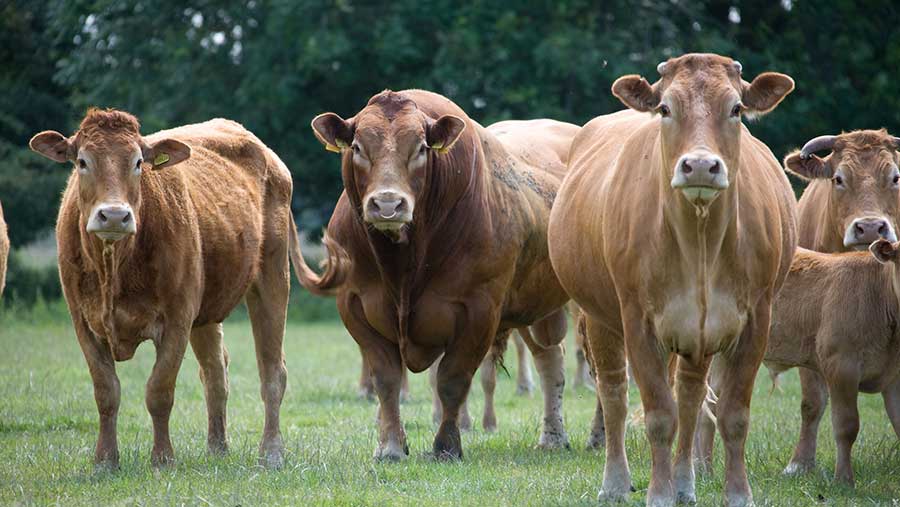Beef research project yields cash and climate change benefits
 © Tim Scrivener
© Tim Scrivener A cost-saving tool for UK beef farmers that allows animals to be selected for feed efficiency could help the sector cut greenhouse gas (GHG) emissions quicker and reduce feed bills by up to £12.5m/year.
The selection index tool has been described as a “game-changer” for beef farmers, as it will reduce feed costs while maintaining growth rates, and accelerate the rate of reduction of GHG emissions from the sector by 27% over a 20-year period, when compared with measures already in place.
The tool was developed under the Beef Feed Efficiency Programme by studying Limousin and Angus store cattle to identify animals and sire groups that eat less than others but achieve the same growth rate.
See also: How government push for net zero could affect agriculture
The project has completed its first phase and has defined a number of estimated breeding values for feed efficiency traits, along with a sub-index, which will enable beef farmers to select cattle for improved feed efficiency.
The difference between the top and bottom 10% of Limousin animals measured was 1.93kg of dry matter (DM) a head a day.
The 10% of animals that had the lowest residual feed intake (RFI), on average, ate 1.93kg less DM of ration than the 10% of animals with the highest RFI.
For the finishing ration, there was a saving of 25p/day for each animal for the lowest RFI group as opposed to the highest RFI group.
The researchers said if this sample is representative of all prime slaughtered beef cattle in the UK then, if scaled up, it would equate to a saving of about £61m across all cattle finished over a 120-day period, and a reduction of 13,000ha used for grazing and forage production across the industry.
The programme was created by the AHDB, Defra, Scotland’s Rural College, the Scottish government and processor ABP.
Programme manager Natalie Cormack said: “We are now able to provide genetic selection information at breeder level that, when implemented, can achieve a clear reduction in feed costs.
“Animals that eat less while maintaining performance will also reduce their GHG production, as well as needing less ground to sustain them. The programme therefore provides a solution to two key issues that are impacting our industry.”
